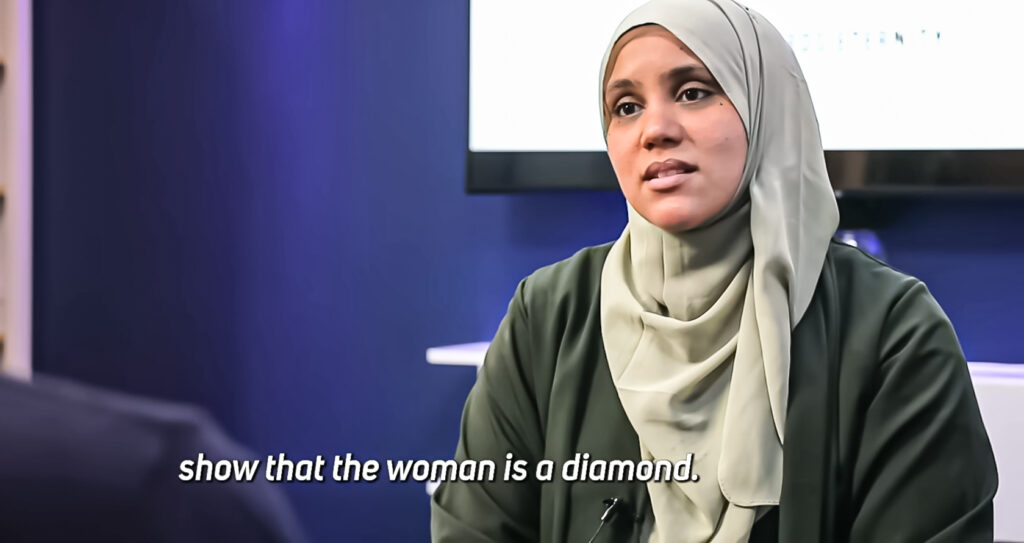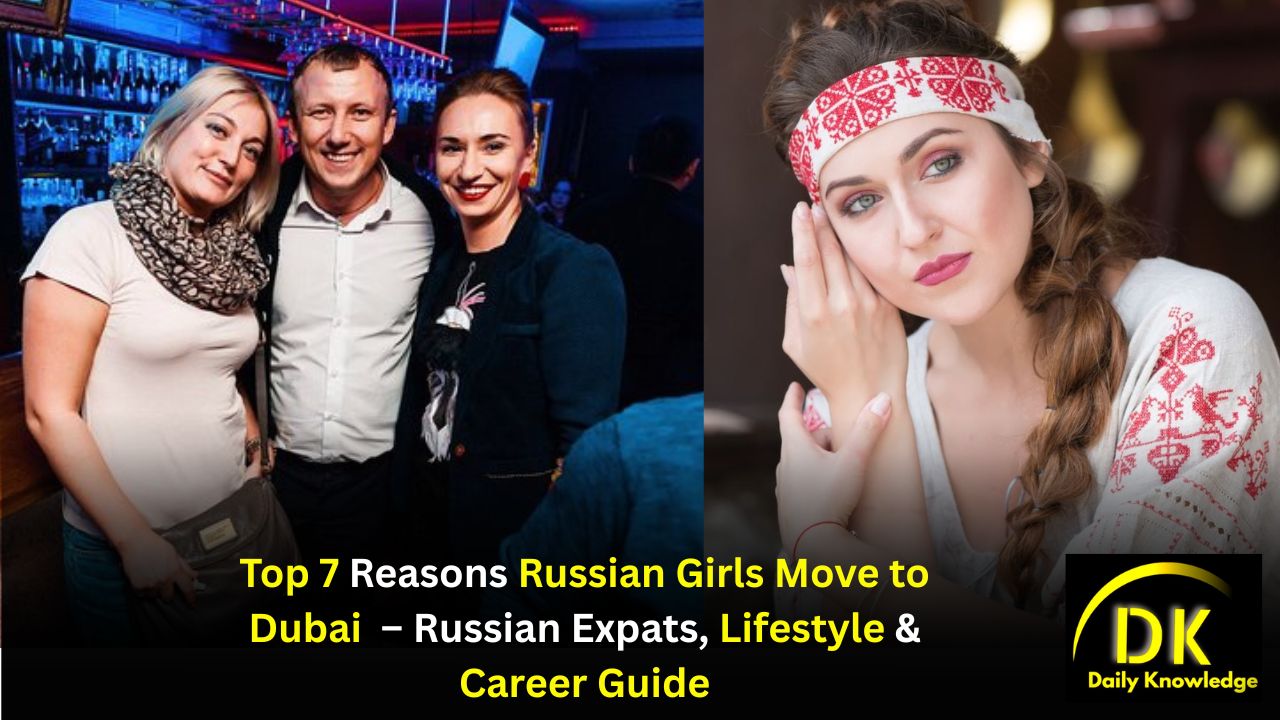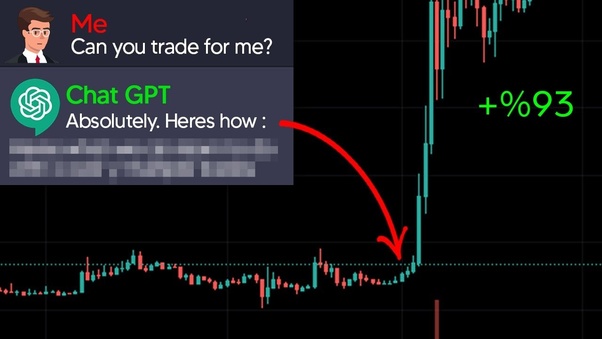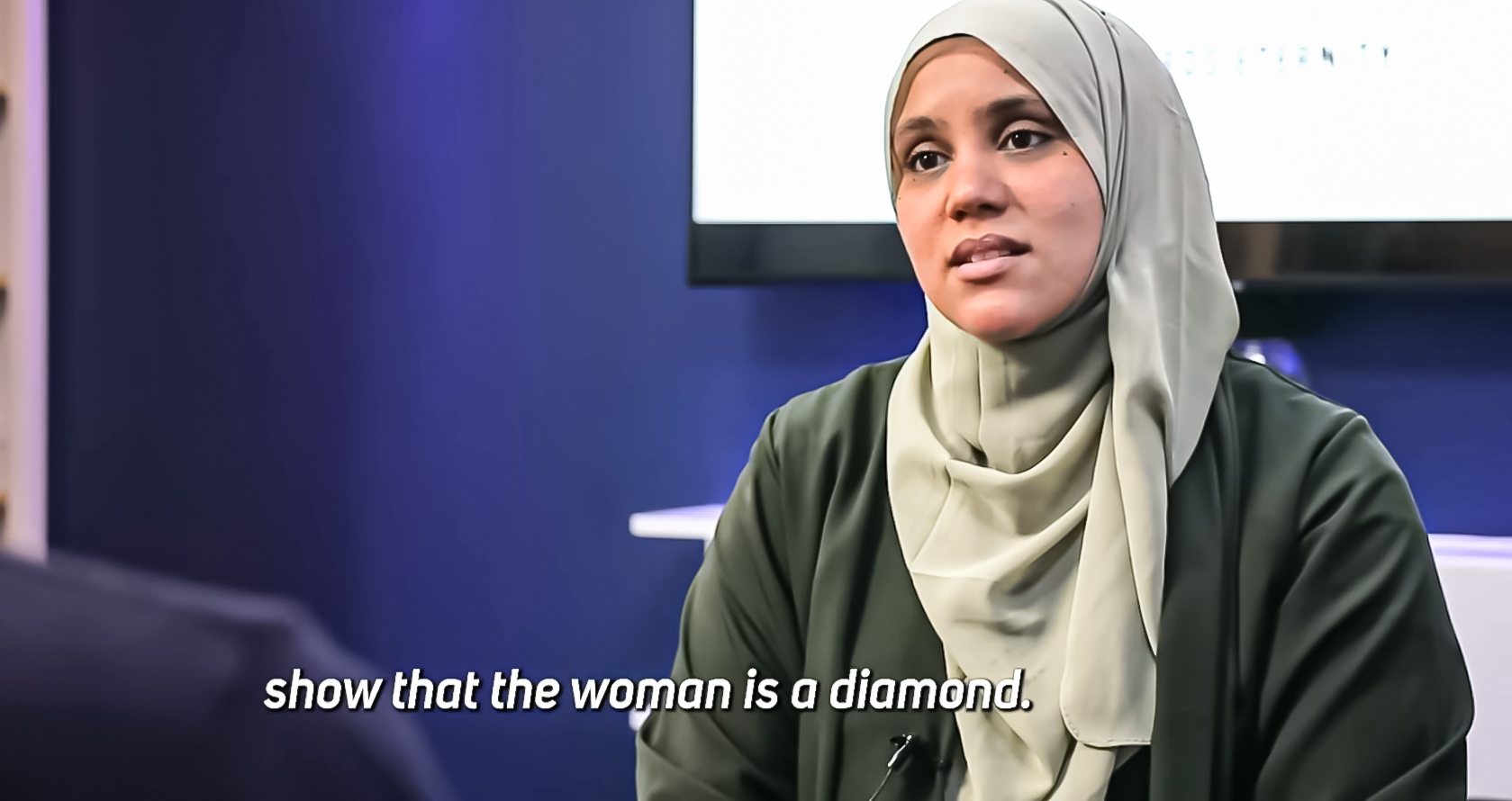Aliyah Umm Raiyaan is the Founder and CEO of Registered Charity, Solace UK, who support women who have converted to Islam and find themselves in difficulty.

Introduction – Take Off Hijab! Rejected Me Because of Islam!” Emotional Revert Story!
I started to read the Quran for one arrogant reason, and that was that I wanted to find a contradiction through the Articles, the leaflets, and the cassettes. I put the Quran away; it was becoming too much for me mentally and emotionally. You see, I converted to Islam, and this is who I am today. She was really nasty when she said, “I’ve done my job,” to me. I no longer need to be your mother, and you’re on your own.” Um and Um to be rejected by your mother is very, very painful, very, very painful. I couldn’t find where I belong. I felt incredibly lonely and it became too much.
I called my mother and said to her, “Please come and take me home.” I stopped practicing Islam, so I took off my hijab. I stopped praying. Thank you for accepting our invitation. I want to start with who is Alia, um, Rayyan, and can you tell us briefly about your life? First of all, thank you very much for the opportunity. East London is where I was born and raised. I grew up in a predominantly Muslim area. It was a prince; it was predominantly a Bangladeshi area, and so I would see Muslims quite a lot. So I’m of mixed race; my mother is Italian, and my father is Nigerian from West Africa. But every time I hear this question, I automatically assume Alia is a soul with a spiritual goal to reach Allah.
How was your life regarding Faith? What did you believe in?
I grew up as a Christian; I became a born-again Christian actually as a teenager. I always believed in God; my mother raised me in a way that encouraged me to be curious about life’s purpose and the world. So even though I became a born-again Christian, there were kind of gaps. So yes, I questioned the kind of fundamentals of Christianity at a very, very young age and found that while emotionally and spiritually I was inclined towards the faith, rationally it didn’t sit with me. So I actually ended up leaving the faith.
My father’s background is very, very interesting because he was born a Muslim; my grandfather was Muslim. When my grandfather died long before I was born, my father left Islam. And so when he met my mother in London, he wasn’t a Muslim. So I was never brought up upon Islam; there was no form of Islam; he wasn’t Muslim.
What caused you to doubt your beliefs, specifically?
My mother and I went to church, as I recall. I would go church, and it would be really emotionally and spiritually rewarding, but I had concerns.
I couldn’t understand how we were worshiping the Son of God. I couldn’t understand how in one moment, he was the Son of God; the next moment, he was the Lord, but more importantly, he was a man who was a human being like myself. And I couldn’t understand logically and rationally how I could worship another human being; that didn’t sit right with me at a very, very young age. And so I questioned that, and I remember one particular day speaking to the pastor of the church and asking him this question, and he said, “Just have faith.” And it was at that moment that I knew that this wasn’t for me.
How did you first hear about Islam?
So I have to take you back to my very, very early childhood to answer this question. I grew up in a predominantly Muslim area; it was a Bangladeshi area. Opposite where I lived, I was on the first floor. I was about eight years old. I would go to the living room window and lean on the window living room windowsill, and I would be able to see the ground floor opposite the road from where I lived. Additionally, there was a makeshift Masjid, which at the time was only a container. I could, however, see into the prayer area of this sort of improvised mosque from where I would lean as a youngster, and I thought it was amazing.
When they entered, I would see them bend and prostrate, and as a youngster, I thought that was interesting. And several times a day, I would dash to the windowsill to try to take a picture of this. So, regrettably, conditions at home were fairly poor about the same age. My parents didn’t get along; they were always arguing. There were constant arguments and constant fights. And I remember one particular day, there was a huge fight between my mother and father, and I ran to my bedroom. I was about eight years old. On my way to the bedroom, I took my mother’s shawl; it was a beautiful kind of Asian shawl that she had been gifted by her Pakistani work colleague.
And I took the shawl and threw it onto the ground, and I made sujud, I prostrated, and I said to God, and I remember I said, “God, make them Quit arguing. But, you know, I was a small child at the time. I didn’t know exactly what I was doing, but I was copying what I had seen in the Masjid, you know, and I thought that God would hear me That’s how I felt at the time since that was a position that was near to God. So that was kind of like my first experience of Islam. And then there’s another one, fast forward two years; I was 10 years old. I was at school; I came home from school, and we heard the news that one of our classmates who was actually in my class, had finished school, and ran over the road to purchase some playing cards that were very popular at the time.
And he had gotten knocked over by a big truck and he died instantly. And school wrote home to all his classmates and invited them to his funeral, which would take place in a couple of days. So I begged my mum to let me go, and there were a few of us who were non-Muslims in the class, and she said yes. And I remember saying to my friends, Layla, who was my best friend at the time, she was from Somalia, I said to her, “Can I borrow a scarf?” And she said yes. So she gave me a scarf, and I remember walking into the East London Mosque. I think I was the only non-Muslim child who went to the funeral, and I prayed the janaza prayer thereafter. And I remember in the prayer making sujud and feeling this sense of closeness that I had felt when I made it two years earlier, and that was kind of like my second experience of Islam.
What happened that you started to become closer to Islam?
So, circumstances at home worsened. There was a lot of DV at home and domestic violence at home. I was affected by that mentally and emotionally, and Subhanallah, Allah placed someone on my path. She was a classmate at secondary school, and she was a practicing Muslim. Out of all of the Muslim girls in my class, they were quite cultural, but she was, you know, she was very, very practicing. And she was going through something similar at home, but the situation between her parents was far worse than mine.
Her mum was, you know, Subhanallah, you know, a victim of domestic violence; she was beaten up regularly. And yet, despite that, she was calm; she was at peace. You have a far worse family situation than I have, I recalled thinking. I’m falling apart, but you’ve got it together. You know,
How are you able to kind of get through this?
I’m being affected by this.” And she said, “It’s my faith that gets me through.” Now, I thought I knew who Muslims were, but I also felt that Islam was a very backward religion. And I developed a great love for this particular friend; we became very, very close. We were completely different; I mean, I was wild, I was a bit crazy, you know, very popular; she was, you know, mashallah, practicing Muslim. And yet, we became very, very close.
And I started to look into Islam; I started to read articles at that time, listening to tape cassettes. We started to read the Quran for one very arrogant reason, and that was that I wanted to find a contradiction in the faith to save her because I just felt that the hijab was wrong. I felt that it would hold her back from a successful career, and a successful life. You know, and I felt growing up in the area that I did, what I saw, you know, was men walking two miles ahead whilst their wives walked behind them. You know, these were the stereotypes that I had. And so it was interesting because, on the one hand, I could see that there was something about this faith that produced this beautiful sense of peace in her, and that, on the other hand, this was going to restrict her. This was going to oppress her; this was going to hold her back. So I started, and we used to debate, and, you know, we would talk regularly. And as time went on, I started to become convinced that Islam was true, and it terrified me.
“I started to become convinced. My thoughts and my emotions both started to shift. All I could discover was a thorough way of living; I couldn’t find anything else. All I could find were scientific proofs in the Quran. All I could find in my research was the literary Miracle of the Quran. There was nothing, and that scared me because even though I was young at the time, I’ve always been the type of person that if I adopt something, if I choose something, I give it 150. So, I knew that as I was beginning to change and I started to become convinced that that would mean that I would have to change my life. That scared me.
What was keeping you from taking your shahada and how did you become Muslim in the end? Fear overcame me. Fear reigned supreme at that time, to the point that I cut off from my friends. I threw away the articles, the leaflets, the cassettes. I put the Quran away; it was becoming too much for me mentally, and emotionally. I was afraid of what I believed. I was afraid that I would have to change my life. I wouldn’t say that I particularly loved my life, but I was free, right? And to give up your freedom is a very scary thing, particularly when you don’t know what you may gain. And I now understand what I have acquired.
So, I cut her out and I just carried on with my life. And then I remember revising for my exams. There was a particular weekend when I was revising for my exams, but for some reason, I couldn’t concentrate. All I could think about was Islam. All I could think about were the things that I had discovered. It was almost as though I was bombarded by these thoughts, you know, these thoughts about the scientific proofs in the Quran, the existence of God, the proof of the messenger ship. And it was just thought after thought after thought.
So, I took myself out for a walk around where I lived at the time just to get a bit of a breather. I came to a road that I would regularly cross. I stood there waiting for the green man, and the green man came, and people were crossing, and I just couldn’t cross. It felt as though my legs were pinned to the ground. And the thought that was in my mind was if I cross this road or, in fact, any other road, and I’m hit by a car and I die knowing what I know, what I truly know, what would that mean for me? It just dawned on me. Why am I not testifying to that which has already entered my heart? So, I took myself home and called my friend. She picked up the phone, heard my voice, and she was just so happy to hear from me. And I said to her, ‘I believe, and I need to take my shahada.’ And that was the weekend, and on Monday, I took my shahada.
How did your family react to your conversion to Islam?
Being the kind of overzealous, passionate, young person that I was at the time, the way that I told my mother was arriving home, knocking on the door, and her opening the door to me in hijab was not the best decision, I have to say. Not the best of decisions. And she looked at me completely confused, and I said, ‘Yes, you know, I’ve become Muslim, and this is me now.’ She thought it was a phase, and it’s been a 24-year phase, Alhamdulillah. It was very, very difficult after that. I lost family; I lost friends. I ended up on my own at a very young age. The first few years after becoming Muslim were very tough.
Similar Posts
- Best Tips for Handling Toxic Senior | Signs Your Boss Don’t Like You and How to Deal with It
- Why AI is Harmful for Muslims? | AI SCIENTIST From Google Sends Warning to Muslims
- How Social Media’s Corruption Manipulate Our Muslim Culture?
What was the major challenge you faced after becoming a Muslim?
I lost a relationship with my mother. Several things happened at the time; she was in a new relationship, and that man hated Islam. He turned her against me, and I remember at the age of 17, it was a very painful moment when she said to me, she looked at me, I was 17, and she said, ‘I’ve done my job. I no longer need to be your mother, and you’re on your own.’ And that was very, very difficult at that age. You need your family, and to be rejected by your mother is very, very painful.
So, that was hard, and then after that, to have to fend for yourself at a very young age, to get a job, to be alone, and then several other difficulties that I went through at the time, which are quite personal. Without family support was really, really hard. I was living on my own, and I embraced Islam through a particular group, an Islamic group which I ended up leaving, and then I ended up kind of going to the other extreme. So, I went from one extreme to the other extreme, and while all of this was happening with my family, I couldn’t find where I belonged.
I was new, you know, the transition, the identity crisis that you go through as a new Muslim. So, I faced rejection from my family. I’ve gone from one Islamic group to another Islamic group, you know, both kinds of at the end of the spectrum, and I couldn’t find where I belonged. I felt incredibly lonely that it became too much.
How did you start practicing Islam again?
So, I got a job eventually, I moved out again, and just kind of carried on with my life. You know, I was free; I didn’t have to deal with all the issues that I had faced as a new Muslim. But there was an emptiness, and there was always something that didn’t feel right. And then it was, you know, I spent a couple of years like that, and then the emptiness became too much, and I knew that it was because I was living a life that didn’t align with my beliefs.
So, I started to come back to Islam slowly, and I remember, you know, people say that the shahada was like the sweetest moment of their life, but coming back to Allah and coming back to Islam without the pressures of a group or without someone telling me this is what you need to do, this is haram, this is halal, this is, you know, you’re doing things wrong. No, coming back to Islam without all of that was the sweetest moment of my life. And so, I started to pray again, and I started to practice again. And I remember just feeling a sense of peace that I hadn’t felt in a very long time. And it was just me and Allah. It was just me and my Creator, and that was enough. And that was everything.
As an American, brothers and sisters, we realize that 80% of our audience, including this video, are not subscribed to our channel. As you know, we are a non-profit organization, and advertisements are disabled on our videos. The World Eternity is not just a YouTube channel but also a mission. Here, we try to educate ourselves and the youth Islamically. So, the only reason we are asking for this is to spread the truth. It may seem like a small act, but, inshallah, it will help us reach millions of people, and let’s together work towards eternity.
Returning to Islam naturally, a path that is once more between me and my Lord. It was beautiful, it was so sweet. I remember reading one page of the Quran every day in English. I started to wrap my hair kind of like an African style, and obviously, that progressed to hijab. I started to pray again, and I came back to Islam and started practicing again, alhamdulillah. Because it was just between my Lord and myself and my Rob, it was a lovely, tender time.
How did this impact your relationship with your mother?
So, my mother ended up leaving that marriage, which was the best thing, and she began to heal. I think she’s very much still healing. We began to repair our relationship, and that took a lot of effort, I think from both parties, both sides. And then, in 2015, she began to ask questions about Islam. I was living abroad at the time, in North Africa. She began this kind of journey; she had all of these questions. Then, in 2015, she said that she wanted to become Muslim, and this was at a time when she had my mother be an avid reader; she reads; she eats books, you know. She loves history and Islamic history in particular. You know ended up creating that curiosity and that sense of wanting to know more.
So, in 2015, she did say that she wanted to become Muslim, and she ended up taking her shahada very shortly after that. She said that she couldn’t maintain the faith, and I think that’s because of her age. I think it’s because she didn’t have any Muslims around her. I was living very, very far from her. And so, she ended up leaving the faith, and then in 2021, she began to watch some YouTube videos, and she came to me. She said to me, “Oh, I came across, came across these videos by a woman called Aisha Prime.”
I didn’t know her at the time, so I quickly started to research, she’s an American sister, and that led to my mother watching videos of Sheikh Khalid Yasin. And she came to me, and she was so excited, and she said, “I have come across this man. I don’t know who he is, but he speaks to my soul. He’s so knowledgeable. He is someone that understands history.” You know, and she has, you know, she has an inclination towards history. And then she would read, sorry, she would watch video after video after video, and she would come to me, and she’ll say, “You know, I’ve learned this, and you know, he’s done this, um, this series about Jesus, I think it’s called Historical Jesus, and you know, she found it fascinating.”
She would just be constantly watching, watching, watching, and coming back to me. And I didn’t say anything. I thought, “I don’t know what’s happening here, but something is changing.” And I would just answer the questions. I wouldn’t input. I’d just wait for her to approach me. All she’d say would be, “This man is incredible.” So I decided to go look for him on my own. I just sent out a message to my connections asking whether anybody has Khalid Yasin’s contact information. And someone sent me in the direction of his Facebook profile, where you can find his email address and phone number. I informed him of what had transpired in an email to him.
Then I addressed him, saying, “My mother has seen your videos.” This is her past. This is what’s kind of happened. I’m a revert. I told him my entire story. And I said, ‘I know you’re incredibly busy, but would there be any possibility of you speaking to my mum?'” I sent the email. Now, Khalid Yasin is a busy man, so I didn’t even think that my email would enter his inbox. Maybe it went to his spam or his junk. Twenty minutes later, he emailed me back, and he said, “It would be an honor, and let’s talk.” So, we spoke, and I told him the story. I told him about my mom; I told him everything that she, you know, had gone through. I told him about her new kind of discovery and, you know, the questions that she’s been asking and the things that she’s been telling me.
She’s developed this love for the Prophet (saw), you know, she things are making sense, things are aligning, and it’s not like before. And, you know, she’s really believing in Islam. And he asked me a question. “What’s the name of your mother?” he asked me. And I said, “Well, my mother’s Italian name is Josephina, but, you know, in the European way, it’s Josephine.” And he said, “My mother’s name is Josephine.” And he said, “My mother is in her 90s, and she’s dying. She’s…” He said to me, “Your mother, your Josephine, is on her way in, was my mother, my Josephine is on her way out.” So, he said, “We’re gonna do this. You’re going to say to her because I thought, how am I going to get her to speak to, you know, I want them to speak.”
But he said to me, “She may, you know, she may not accept even though, you know, because she likes my videos.” “Tell her that there’s someone who wants to talk to her about her research and her journey into studying Islam,” he continued, being sure not to identify himself. Let me carry it on from there, you know.” I then turned to face her again and remarked, “Oh, this man.” He does research. He only has a few questions for you.
Could you perhaps respond to a few of his inquiries?”
Yes, of course, she said. I also told her, “Oh, Mom, by the way, you know, in my conversation with him, he told me what your name is in Arabic.” Her response was, “No.” Saying, “Why?” And she said, “Just this morning, I was having a conversation with my colleague who studies Hebrew and Arabic, and I said to him, ‘Do you know what my name is in Arabic?’ He said that he would let me know.” She said, “Here you are telling me what it is, and she was like, ‘No way. This is not possible.” They eventually spoke, and I was there on the Zoom conference. Actually, I did record it. And the way he handled it, may Allah reward him, well, they were having this discussion, but he was just asking her questions because she wasn’t recognizing his voice.
It sort of led to what she thought, and then he persuaded her to express what she thought, and she thought there was only one God and that Muhammad (saw) was his final messenger. So she said that in the video, and he said, at the end of the meeting, he said, “Do you know what ‘sky’ stands for?” And she said, “No.” And he said, “It stands for Khalid Yasin.” She didn’t hear him; he repeated it, and she said, “No, it’s not you.” And he said, “Yes.” And she’s like, “No, if I had known it was you, I would have been more, you know.” And anyway, what followed from that was that they had a couple more Zoom sessions, and she ended up taking her shahada.
Becoming Muslim and wearing a hijab restrict your freedom?
Upon embracing Islam, I have gained my freedom because freedom is removing the shackles placed by people. You live for your Creator and not for other people when you have a genuine connection with Him and your mission. That, therefore, is real freedom. I am free because my decisions, choices, where I go, what I do, and what I don’t do are for the one who formed and fashioned me, even if yes, I am now wearing a hijab and yes, I have certain duties to perform for the sake of my Lord. It’s not intended for those that travel the same path as myself. I’m free, certainly, but some non-Muslims tell me that I’m deluding myself. We have freedom. No, it’s because they serve a master. The motivation for our daily awakenings is not insignificant.
For all of us, that could be family; it could be a job; it could be the to chase wealth; it could be your own desires. But we are all enslaved to something. I would rather be enslaved to the one who is perfect, to whom I came from and I will return to, than to something which is going to end just as I will one day. I once felt that Islam oppresses women, and restricts them, and I realized actually that Islam, with culture removed—and I have to point that out—Islam at its purest form values the woman in such a beautiful way, according to who she is as a woman. The companions of the Prophet (saw) asked, you know, who should love the most? What was his reply? Your mother.
He answered again, your mother. The way that the woman is honored, protected, supported, and understood by Allah, and then the kind of legislation that has kind of taken place via the Prophet (saw) shows that the woman is a diamond, really and truly. When I think about where I would be now if Allah hadn’t guided me, I know that I would be lost. If for life I wake up knowing that I was meant to be here, I was meant to exist just as I am, and that is where I attach worth. I attach my worth to my Lord. When I do that and I understand that, I realize that a woman in Islam is free, honored, supported, protected, and held in such high regard.
If you had a chance to speak to all the non-Muslims in the world, what would you say to them in just one minute? I would tell them there has to be a purpose behind the normal kind of daily grind of life. This isn’t it, and since life is a roller coaster, if you believe that this is it, then it has to be the saddest conclusion anyone can reach. It’s full of trials, it’s full of hardship, it’s full of difficulty, it’s injustice, sadness.
Why were we created?
So, if this is it then why were we created? I would invite them to think; I would invite them to consider the cycle of life. Take a flower, to look at how that flower grows from a seed and blossoms into something beautiful and then withers and dies again. I would invite them just to stand in front of the ocean and to look at the depths of the ocean and that life exists in the darkness of the ocean. To take a leaf and look at the intricacies of the design of one single leaf and ask themselves, where did this come from? What is the purpose of this leaf? What is the purpose of this flower? What is the purpose of the ocean? Then think, I too am a part of that creation. So, if there is a purpose of a leaf and the purpose of a flower, what is my purpose? That’s what I would ask her.
FAQ’s of Take Off Hijab! Rejected Me Because of Islam!” Emotional Revert Story!
Q1: Becoming Muslim and wearing a hijab restrict your freedom?
Ans: Upon embracing Islam, I have gained my freedom because freedom is removing the shackles placed by people. You live for your Creator and not for other people when you have a genuine connection with Him and your mission. That, therefore, is real freedom. I am free because my decisions, choices, where I go, what I do, and what I don’t do are for the one who formed and fashioned me, even if yes, I am now wearing a hijab and yes, I have certain duties to perform for the sake of my Lord. It’s not intended for those that travel the same path as myself.
Q2: How did your family react to your conversion to Islam?
Ans: Being the kind of overzealous, passionate, young person that I was at the time, the way that I told my mother was arriving home, knocking on the door, and her opening the door to me in hijab was not the best decision, I have to say. Not the best of decisions. And she looked at me completely confused, and I said, ‘Yes, you know, I’ve become Muslim, and this is me now.’ She thought it was a phase, and it’s been a 24-year phase, Alhamdulillah. It was very, very difficult after that. I lost family; I lost friends. I ended up on my own at a very young age. The first few years after becoming Muslim were very tough.
Q3: Why were we created?
Ans: I would invite them to think; I would invite them to consider the cycle of life. Take a flower, to look at how that flower grows from a seed and blossoms into something beautiful and then withers and dies again. I would invite them just to stand in front of the ocean and to look at the depths of the ocean and that life exists in the darkness of the ocean.
To take a leaf and look at the intricacies of the design of one single leaf and ask themselves, where did this come from? What is the purpose of this leaf? What is the purpose of this flower? What is the purpose of the ocean? Then think, I too am a part of that creation. So, if there is a purpose of a leaf and the purpose of a flower, what is my purpose? That’s what I would ask her.
-

Top 7 Reasons Russian Girls Move to Dubai in 2026 – Russian Expats, Lifestyle & Career Guide
-

Chat GPT and the Rise of Smart Stock Trading: Harnessing AI for Better Returns
-

Supercharging Your Stock Portfolio with Chat GPT: Unleashing the Power of AI
-

Maximizing Profits in the Stock Market with Chat GPT: A Step-by-Step Guide

